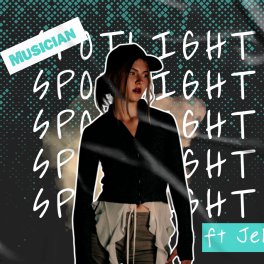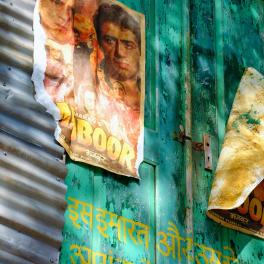
I’m a major bookworm. My favourite genres would be fantasy and horror, but I’ll read pretty much anything. So, my all-time favourite books are actually kind of a mixed bag! It’s on the basis of excellent writing that I recommend the following novels.
1. Piranesi by Susanna Clarke
The story is named after its protagonist, Piranesi, a man that lives in a strange labyrinth called the House. The only other person that is present there is another man conveniently referred to as the Other. Over time, Piranesi discovers that things aren’t what they seem, and people aren’t who they seem, and his perception of the world is challenged.
I’ve mentioned this novel before in my article Discovering The Art of Magical Realism. Piranesi has had quite a big influence on me. What captivated me was three major components: the style, Piranesi himself, and the setting. In terms of style, it’s written in journal entries, which makes the reading of it feel a lot more intimate and real. Consequently, it also helps you to connect with Piranesi, who in my opinion has a comforting personality, and his journey as a character is endearing. You really get invested in his life, and whatever actions he may take to progress it. The House is just amazing, beautifully described, so visceral. The relationship between setting and character is very interesting in Piranesi particularly.
2. The Tombs of Atuan (Earthsea) by Ursula K. Le Guin
We follow a young woman called Tenar who becomes a priestess for dark, ancient forces on Atuan, one of the Kargish Isles. She struggles with her new responsibilities, what her future may be, what the past was, and who exactly she is. But that changes when she meets the wizard Ged.
I’ve also made reference to the Earthsea series in the aforementioned article, which has quickly become my most adored book series ever. It’s hard to pick a favourite out of the first four books, but The Tombs of Atuan just about takes the spot because of what it adds to the world of Earthsea. I find it interesting to follow a female lead and how her experience differs and/or is similar to the male lead in the previous book. But for me, I’m drawn to the new location out of everything because of its geographical features and the lore behind it. The tombs are described as labyrinth-like too, so maybe there’s a pattern here.
3. Annihilation by Jeff VanderMeer
Annihilation is about a group of women sent to investigate a mysterious place named Area X which has been closed off from the rest of civilization. Our protagonist, a biologist, sets out with her colleagues from various fields of expertise. Previous expeditions ended in death, and in Area X, they find out why as they make some shocking discoveries.
I had to read this novel for my course, but I enjoyed it so much, I even wrote a book review on it. The biologist is such a compelling character, especially as we see the narrative through her eyes. The writing style is scientific, but still personal because it is her perspective. I get a strong sense of 'hero versus their fate' with her, and her environment highlights that. Like Piranesi, there’s a unique dynamic between the biologist and the world around her, which makes sense considering her profession. Nature is part of her identity. It’s fun to dissect her interactions with her peers and her interactions with nature. She feels so human to me.
4. Misery by Stephen King
The narrative revolves around an author, Paul Sheldon, who has just finished his Misery series and who can now move onto other ideas. But after getting into a car accident, he is rescued by Annie Wilkes, his biggest fan who is not happy about what happened to her favourite character, Misery Chastain.
Stephen King would be an author who I ‘auto-buy’, meaning if his name is on the cover of a book, I’ll automatically buy it. I have yet to find a novel of his which I didn’t enjoy. Misery is at the top of them all because it’s a fantastic blend of horror and comedy, anchored down with some convincing realism. It is an absurd concept, but it works. Annie is a perfect antagonist and you come to picture her in your head very vividly. You’re put into Paul’s shoes despite the book being third person perspective. The pacing is superb, speeding up and slowing down when needed. Tension builds organically. You never know what’s going to happen next!
5. The Lost Child by Caryl Phillips
The Lost Child is a reimagining of the novel Wuthering Heights by Emily Brontë, following multiple characters across different time periods. We dip into the childhood of Heathcliff, we follow Monica Johnson in the more modern era as well as her children’s lives, and we even glimpse into the personal life of Emily Brontë herself.
It’s another book I read for my course, and I was so interested in it I wrote an essay on it and Wuthering Heights. It’s hard to summarise because the point of view changes a lot along with where you are in the past or future. However, the fragmentary style is what I find intriguing. It’s the first I’ve read of its kind. Plus, the style suits the premise. The Lost Child is a postcolonial work of fiction which sets out to illuminate what the English Literary Canon omits from history. We get to see the stories of those marginalised and whether the situation has changed or stayed the same later down the line.
...And that's it!
I of course have many more favourites, but I shortened the list for the sake of readership. I’m always finding new books to fall in love with, and there’s always different reasons to love them. I’m a firm believer of trying new things, so go check out some of these novels even if they might not be what you usually go for. Remember though! it may be a good idea to check trigger warnings before you do. Have a safe and happy reading!
Links to find trigger warnings:
Support Young Creators Like This One!
VoiceBox is a platform built to help young creators thrive. We believe that sharing thoughtful, high-quality content deserves pay even if your audience isn’t 100,000 strong.
But here's the thing: while you enjoy free content, our young contributors from all over the world are fairly compensated for their work. To keep this up, we need your help.
Will you join our community of supporters?
Your donation, no matter the size, makes a real difference. It allows us to:
- Compensate young creators for their work
- Maintain a safe, ad-free environment
- Continue providing high-quality, free content, including research reports and insights into youth issues
- Highlight youth voices and unique perspectives from cultures around the world
Your generosity fuels our mission! By supporting VoiceBox, you are directly supporting young people and showing that you value what they have to say.





